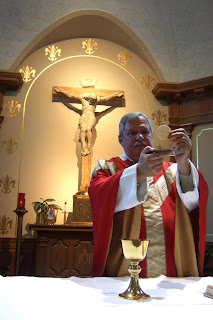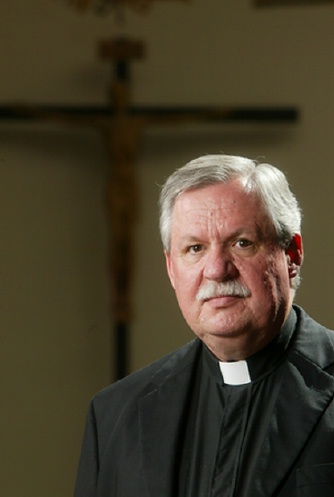
Christ died for us – really died for us. He did not die in the abstract world of theological ruminations. He died for us in the reality of our daily lives. Jesus of Nazareth had to die, and the Risen Christ had to rise. And this dying and rising make all the difference in the world to us as Catholic Christians.
“Dying you destroyed our death, rising you restored our life…”
“By your cross and resurrection you have set us free…”
Once we experience this reality in the concrete events of our lives – that Christ destroyed death for us and restores us to life when the world tries to hurt us, constrain us, betray us – then our lives are richer, fuller, more meaningful, better. Once we experience this new freedom in the concrete events of our lives, then our lives are richer, fuller and more meaningful, better.
It is through His Passion, Death and Resurrection we can come into the fullness of life, the abundance of life, the complete joy that he promises us (see John 10:10; 15:11).
So, we need to understand and his Passion, Death and Resurrection and to live this reality in the concrete events of our daily lives.
The Eucharist embodies the fullness of this reality. His Eucharist is our resurrection from our own passion and death. His Eucharist is our Good News.
This set of nine reflections – divided into individual posts - offers you the chance to enter more deeply into the experience of Jesus of Nazareth so that you can appreciate what he did for us – for you! – and so come to live in that reality in a whole new way.
Ask in the Lord in prayer to help you understand more deeply the mystery of his Passion, Death and Resurrection.
And feel Him come into your life in a whole new way.







